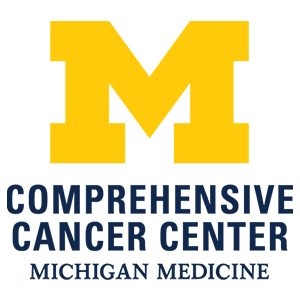Tempus, a health-tech company focused on personalizing cancer care, and the University of Michigan Comprehensive Cancer Center have partnered to bring MI-ONCOSEQ to patients and health care providers across the country who are seeking the high quality data and analyses necessary to personalize treatment for their patients.
The MI-ONCOSEQ panel was developed at the University of Michigan under the leadership of Arul Chinnaiyan, M.D., Ph.D. It uses high-throughput gene sequencing techniques in a clinical setting to help find new options for cancer patients for whom either there is no standard of care for their disease, or the standard of care has proven ineffective.
With each cancer having a different molecular and genetic profile that can involve hundreds or thousands of genes, unprecedented amounts of data are needed to identify patterns that will improve the outlook for patients. Tempus has recruited a world-class team of accomplished geneticists, computational biologists, data scientists and software engineers who have developed software and analytic tools that scales the integration of molecular sequencing and analysis in the clinical setting, providing decision support for physicians whose patients are not responding to conventional therapies.
With the MI-ONCOSEQ platform, sequencing of germline and tumor DNA as well as the RNA of the tumor are used to help guide clinicians’ recommendations of clinical trials or targeted therapies based on the molecular profile of each patient’s tumor.
The panel has been used at University of Michigan to help guide the care of hundreds of metastatic cancer patients. In addition, researchers have made new discoveries in both common tumors – for example, a mutation in the estrogen receptor that makes breast cancer resistant to aromatase inhibitors – and rare tumors, such as a gene fusion in solitary fibrous tumor.
“A ‘one-size-fits-all’ approach is not effective in managing cancer. Licensing the MI-ONCOSEQ panel to Tempus, we hope to make it commonplace for patients to have a molecular blueprint of their tumor and for their physicians to have access to innovative clinical research and analytic tools that will provide evidence for their decision making” said Dr. Chinnaiyan, director of the Michigan Center for Translational Pathology.
Chinnaiyan also serves as a scientific adviser to Tempus.
“Tempus is thrilled to make the MI-ONCOSEQ panel accessible to the millions of patients living with cancer in the United States,” said Eric Lefkofsky, Co-founder and CEO of Tempus. “By taking this clinically validated platform to scale and adding it to a system that builds insight as it grows, health care professionals across the country can now gain a deeper understanding of their patient’s tumor, helping them uncover the best treatment options for their patients.”
